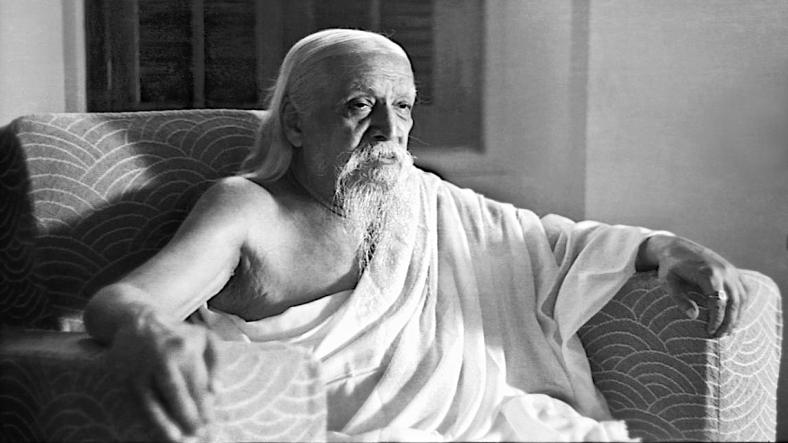Sri Aurobindo (1872–1950) was an Indian philosopher, yogi, poet and nationalist leader who played a significant role in India's struggle for independence from British rule.
Here's an overview of his life and contributions:
- Early Life: Aurobindo Ghose was born on August 15, 1872, in Calcutta (now Kolkata), British India. He received his education in India and England, graduating from Cambridge University.
- Political Activism: Aurobindo returned to India in 1893 and joined the Indian National Congress, becoming a vocal advocate for independence from British rule. He edited several nationalist publications and wrote extensively on Indian culture, spirituality and politics.
- Alipore Bomb Case: Aurobindo was arrested in 1908 in connection with the Alipore Bomb Case, which accused him of involvement in revolutionary activities. He was acquitted but withdrew from active politics afterward, focusing instead on spiritual pursuits.
- Spiritual Awakening: Aurobindo experienced a profound spiritual transformation during his years of seclusion. He began practicing yoga and meditation and delved deeply into Indian spiritual traditions, particularly Vedanta and Yoga.
- Integral Yoga: Aurobindo developed a unique spiritual philosophy known as Integral Yoga, which aimed at the transformation of the individual and society. He emphasized the synthesis of spirituality and worldly life, seeking to harmonize the spiritual and material dimensions of existence.
- Pondicherry Ashram: In 1910, Aurobindo moved to Pondicherry (now Puducherry), where he established an ashram dedicated to spiritual practice and communal living. The Sri Aurobindo Ashram became a center for spiritual seekers from around the world.
- The Mother: Aurobindo's spiritual collaborator, Mirra Alfassa, known as "The Mother," played a crucial role in the development of the ashram and the propagation of Integral Yoga. Together, they worked to establish a spiritual community based on their teachings.
- Literary Works: Sri Aurobindo wrote extensively on a wide range of subjects, including philosophy, spirituality, poetry and social thought. His major works include "The Life Divine," "Savitri: A Legend and a Symbol," "Essays on the Gita," and numerous letters and essays.
- Legacy: Sri Aurobindo's teachings continue to inspire millions of people worldwide. The Sri Aurobindo Ashram in Pondicherry remains a center for spiritual practice and study, attracting seekers from diverse backgrounds.
Sri Aurobindo's vision of a spiritually awakened humanity and a divinely inspired society continues to resonate in contemporary discussions on spirituality, philosophy and social change. His teachings offer insights into the potential for human evolution and the realization of a higher consciousness.
Thanks for reading the article, for more great peoples related articles read our peoples blog articles.










